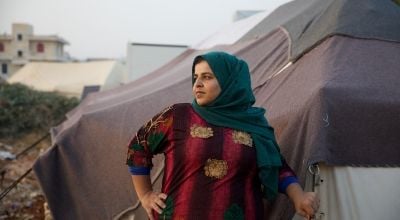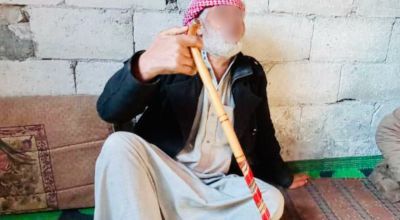
Read our 2023 annual report

Knowledge Hub
Syrian refugee crisis: Concern's response
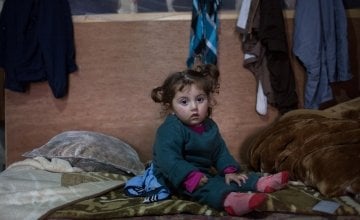
The horrific reports from the Mediterranean in the last weeks have left many of us deeply troubled. Concern has received numerous calls from people asking questions.
Why are so many people endangering their lives by making perilous crossings on the Mediterranean? Where are these refugees coming from? What is Concern doing to help? This blog will hopefully answer some of those questions.
What is the scale of the refugee crisis?
There are over 60 million refugees in the world today – a crisis unprecedented since World War Two. The majority of these refugees come from countries experiencing acute levels of conflict, persecution and poverty, including Somalia, Eritrea, Mali, Afghanistan and Syria.
The almost five year conflict in Syria, particularly, has left over 12.2 million people in need of humanitarian assistance, with over 4 million desperately fleeing to seek safe haven abroad.
Where is most affected by the crisis?
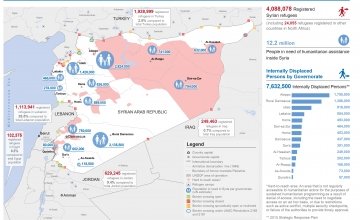
Source: UN Office for the Coordination of Humanitarian Affairs
While the refugee crisis now affecting Europe is urgent and significant, it pales in comparison to the extent of the crisis in Syria’s neighbouring countries.
As Concern CEO Dominic MacSorley has said: "The refugee crisis that is affecting Europe today is echoed more widely and deeply in places like Lebanon. A recent popular myth that must be laid to rest is that the majority of Syrian refugees are heading for the EU."
The figures shown in the UN report above back this up. Turkey is hosting just under 2 million Syrian refugees; Lebanon 1.1 million (a quarter of the total population of the country); Jordan over 600,000; with even besieged Iraq sheltering nearly a quarter of a million Syrians.
This unprecedented influx of people has put huge pressure on host countries to provide adequate shelter, food, clean water, sanitation, and access to schools and health facilities.
Supporting those in need in Syria, and neighbouring countries, to cope with this humanitarian emergency is a massive priority – one to which Concern is actively committed.
How is Concern helping in Syria?
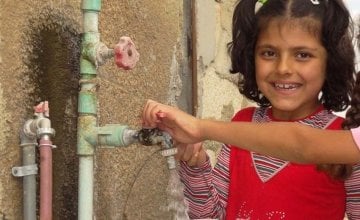
At the moment, our focus in Syria is on health and sanitation issues. To help prevent the spread of water-borne diseases, we are rehabilitating water supply systems to provide clean water to over 250,000 people. We are also providing vulnerable families with emergency kits including soap, toothpaste, toothbrushes, nail clippers, combs, nappies, and other personal hygiene items. Another initiative has helped to protect 400,000 people from the skin disease Leishmaniasis.
How are Syrian refugees being supported elsewhere?
In Lebanon, we are providing shelter for more than 14,500 Syrian refugees. We are also improving the water, sanitation, and hygiene conditions for more than 56,000 refugees and locals. Additionally, we are helping 1,850 children gain access to education, providing psycho-social support to women and children, and helping build resources for communities to promote gender equality, reduce gender-based violence, and manage protection issues.
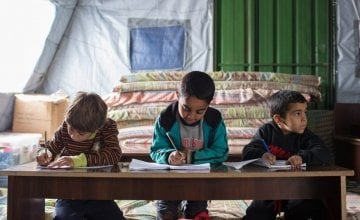
It is increasingly recognised that the provision of educational opportunities is urgently needed to prevent Syrian refugee children from becoming a “lost generation”. Concern has also begun formal and informal education programmes for displaced children in refugee camps in Turkey. We have also distributed hygiene kits to 1,920 refugee households and provided cash transfers to vulnerable families to enable them to meet their basic needs for three months.
Importance of a long-term solution
Of course, while we must continue working hard to help those affected by the conflict in Syria, only a lasting peace can end the current crisis. It is essential that efforts to bring peace to Syria are increased, no matter how difficult that might seem now.
With world leaders gathering in New York in the coming weeks to launch the Sustainable Development Goals, there is a unique opportunity for our leaders to find concrete solutions to the conflict in Syria.
Let’s hope world leaders grasp this opportunity to settle the Syrian conflict permanently.
Help our work in Syria by making a donation today.



